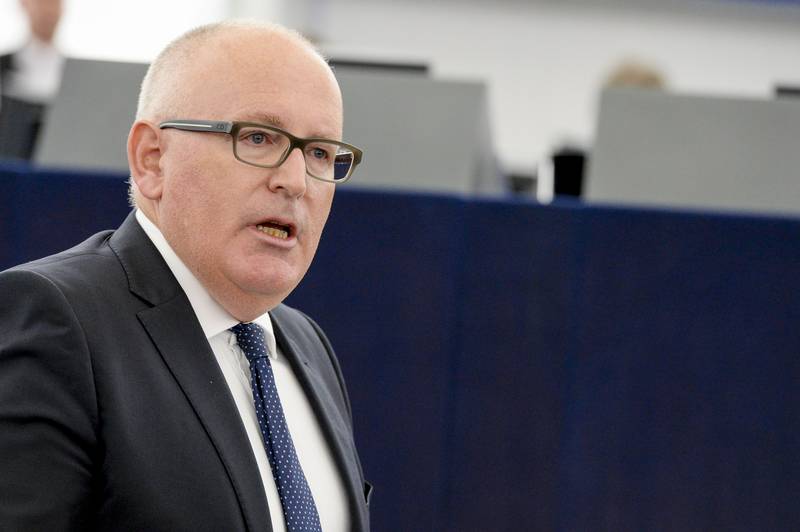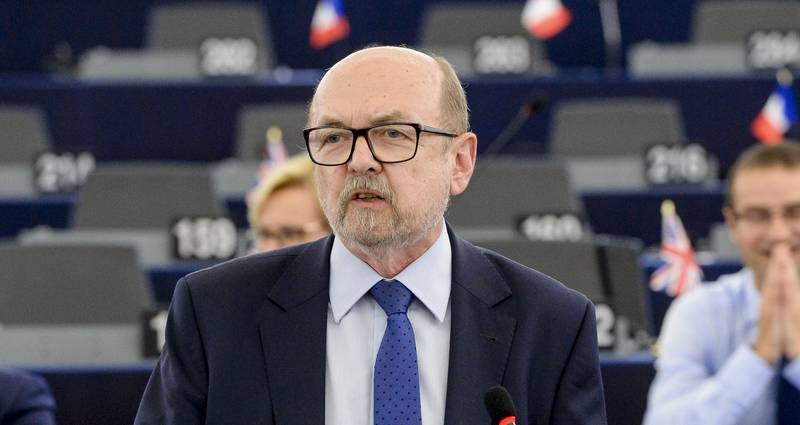Is Poland Headed toward Triggering Article 7?
Adelina Marini, September 19, 2016
 Last week the subject of rule of law in Poland once again got onto the agenda, after the First Vice-President of the European Commission, Frans Timmermans, who is responsible for the rule of law, reported to Members of the European Parliament on what was (not) achieved in the dialogue between Warsaw and Brussels over the last few months as part of the procedure on violation of the rule of law that was launched against Poland in January. Progress has not been great since then and the danger of activation of Article 7 is becoming ever so present. The procedure has three stages. In the first one, the EC makes an assessment and gathers information in order to verify if there really is a systematic danger to the rule of law. In the second phase, the EC sends a recommendation, if the result of the first phase is not satisfactory.
Last week the subject of rule of law in Poland once again got onto the agenda, after the First Vice-President of the European Commission, Frans Timmermans, who is responsible for the rule of law, reported to Members of the European Parliament on what was (not) achieved in the dialogue between Warsaw and Brussels over the last few months as part of the procedure on violation of the rule of law that was launched against Poland in January. Progress has not been great since then and the danger of activation of Article 7 is becoming ever so present. The procedure has three stages. In the first one, the EC makes an assessment and gathers information in order to verify if there really is a systematic danger to the rule of law. In the second phase, the EC sends a recommendation, if the result of the first phase is not satisfactory.
The third phase is for the EC to ask for the triggering of Article 7 of the Treaty for the EU, which suspends the violating member state from voting rights in the Council. At the moment, the procedure is in phase two. On July 27th, the EC sent out a thorough recommendation, in which it requested that the crisis surrounding the makeup of the Constitutional tribunal be resolved and the three members elected in October take their seats. The EC also requested in its recommendation that all court rulings be published and come in full force automatically, instead of depending on the decision of the executive or a judiciary power. Thirdly, the EC recommended that independence is provided for the Constitutional tribunal. The Commission gave Poland a three-month deadline to reply to all objections.
In front of MEPs Mr Timmermans announced that many things had been done since the publication of the recommendation, but the Polish government did not want to recognise the validity of the Constitutional tribunal ruling of August 11th, which several articles in the new Constitutional court law have been pronounced anti-constitutional with. The government also refuses to publish the ruling in the Official Journal. Otherwise, the government has published many other court rulings, but is so far refusing to publish the ruling of March 9th, which annuls the law on the Constitutional tribunal of last December. Frans Timmermans concluded in front of MEPs that, at this stage, the argument around the makeup and complying with the rulings of the Constitutional tribunal remains unsolved.
The debate that followed was short, but glowing hot. It demonstrated the complete mismatch in the perception of rule of law between Polish MEPs from the group of the European Conservatives and Reformists (ECR) and others backing Warsaw, and the rest of the MEPs and the Commission. The EC recommendation of July 27th quotes the Council of Europe definition of rule of law, namely legality - which means a transparent, accountable, democratic and pluralistic process for enacting laws -- prohibition of arbitrariness of the executive powers; independent and impartial courts; effective judicial review, including respect for fundamental rights; equality before the law.
Last Wednesday, the European Parliament adopted with 510 votes “for” and 160 “against” its second in a row resolution, in which the Polish government is asked to fulfil the Commission’s recommendations. The resolution portrays Parliament’s concern about the lack of a fully functional Constitutional tribunal. The document, which has no legally binding character, appeals to the EC to do a full review of all the Polish laws adopted in the meantime. It includes the law on public media, the law on police forces, the Penal Code, the anti-terrorist law, and other legal acts, which are  causing concern about being in violation of European legislation and fundamental rights, including women’s rights.
causing concern about being in violation of European legislation and fundamental rights, including women’s rights.
Against the resolution voted all Eurosceptic groups like Europe of Freedom and Direct Democracy (EFDD), Europe of Nations and Freedom (ENF), European Conservatives and Reformists (ECR). It becomes clear from the VoteWatch printout that most Hungarian members of the EPP group have rebelled against the group’s decision that the resolution is to be supported and voted “against”. Among those members of the EPP, who voted against is also the Bulgarian MEP Andrei Novakov from the ruling GERB party. Nikolay Barekov and Angel Dzhambazki voted along the ECR party line – against. It is curious that the prominent Romanian MEP and defender of the Bulgarian-Romanian so called rule of law mechanism - the Cooperation and Verification Mechanism - Monica Macovei did not vote against along with her colleagues of the ECR, but did not vote “for” either. She abstained. Croatian MEP Marijana Petir was another rebel in the EPP.
During the debate the question of the likelihood of getting to phase three never got raised. The activation of Article 7 can happen at the request of the Commission, the European Parliament, or one third of member states. The deadline for implementing the EC recommendation runs out at the end of October. At that time, the EC will have to decide what to do with Poland.
Translated by Stanimir Stoev
 Entrance to the Berlaymont building | © EC - Audiovisual Service
Entrance to the Berlaymont building | © EC - Audiovisual Service | © European Union 2020, EC - Audiovisual Service
| © European Union 2020, EC - Audiovisual Service Commission President Ursula von der Leyen | © European Union 2019 - Source: EP
Commission President Ursula von der Leyen | © European Union 2019 - Source: EP